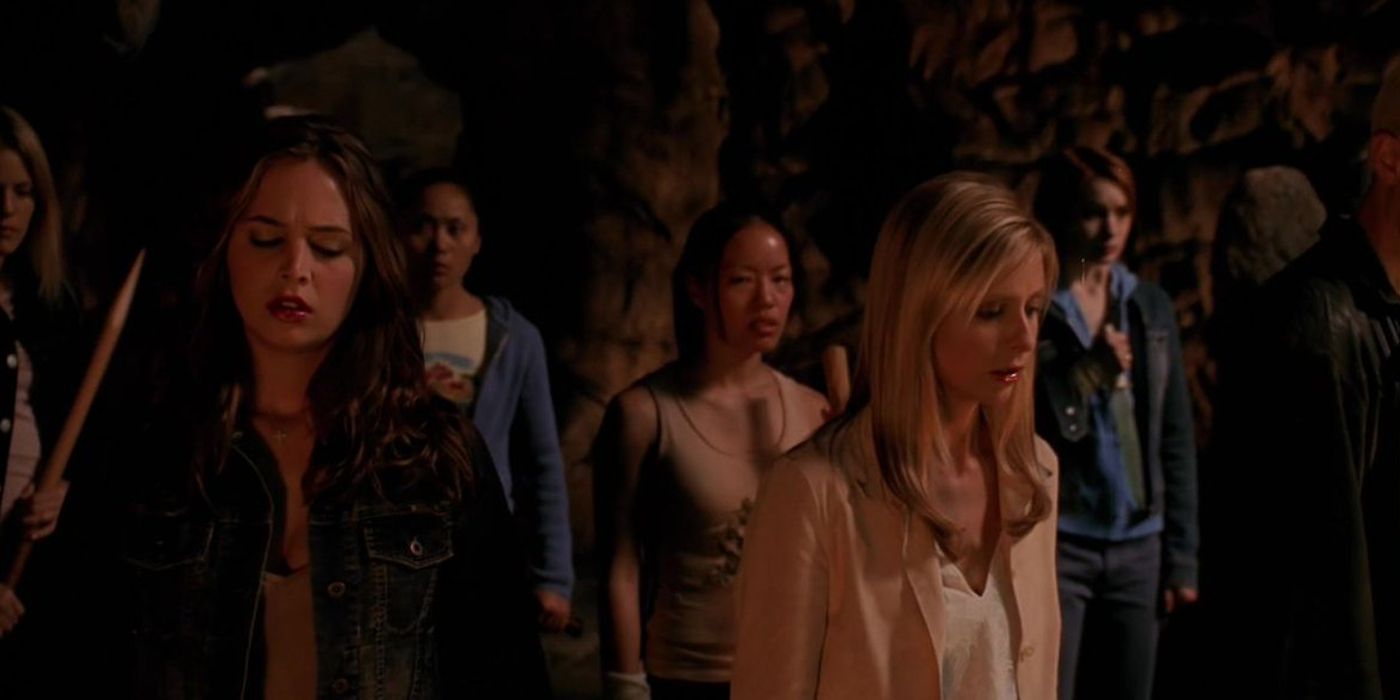In May 2003, Joss Whedon's Buffy the Vampire Slayer came to an end after seven seasons with "Chosen," in which Buffy Summers goes against the established rule that "in every generation, a slayer is born." Using her powerful witch friend Willow Rosenberg and the mysterious slayer scythe as mystical conduits, Buffy shared her power with every potential slayer in the world.
The potential slayers in her company willingly went along with Buffy and followed her into the California town's Hellmouth, where they defeated the First Evil's horde of Turok-Han. But the countless other potentials around the globe didn't give her that permission to imbue them with said power, which has proven controversial.
The Buffy Series Finale Opened a Conversation on Consent
With conversations surrounding consent more prevalent than ever, Buffy's actions in "Chosen" can definitely be seen as problematic. Earlier in the series, Buffy questioned the actions of the men who created the first slayer thousands of years earlier. She accused them of violating the girl, as well as all the subsequent slayers who succeeded her. And yet she went on to essentially do exactly the same thing to a much larger number of girls in her attempt to save the world. Some saw the act as empowering, as Buffy shared her "gift" with a number of women who used their abilities to stand up to bullies and other abusers. But others saw it as just another example of that original violation by those who created the first slayer on a more extensive scale.
If Willow could successfully execute a spell that would impact all of those girls around the world, why couldn't she have contacted them first? She had demonstrated the ability to communicate telepathically on more than one occasion previously -- and she'd spoken of feeling connected to the entire planet just by touching individual objects, so it wouldn't have been much of a stretch of her existing powers for her to have done that. Moreover, why couldn't she have made the spell only work on those who wanted it? The very nature of magic means it wouldn't really have required an explanation to make the outcome of the spell less of a violation.
Buffy the Vampire Slayer's finale is undoubtedly an episode that poses a number of ethical questions -- and it's fair to say it probably wouldn't be written in the same way if the show was around today. Due to the apparent violation of the bodily autonomy of women all around the world, the episode's approach to consent is one that's caused Buffy the Vampire Slayer's ending to remain controversial nearly two decades after its release.


